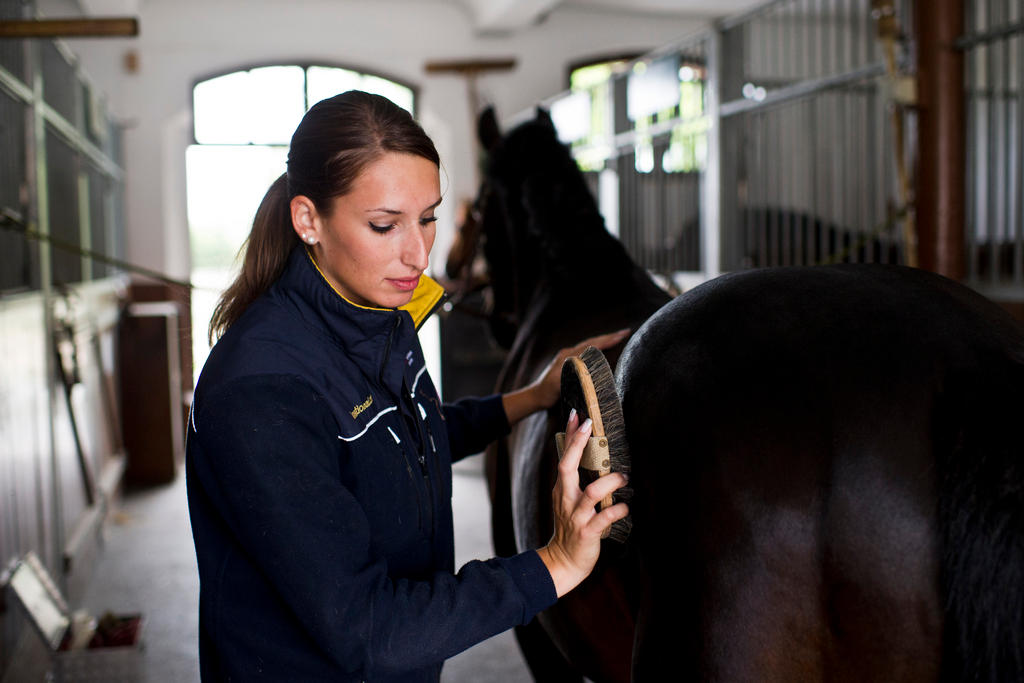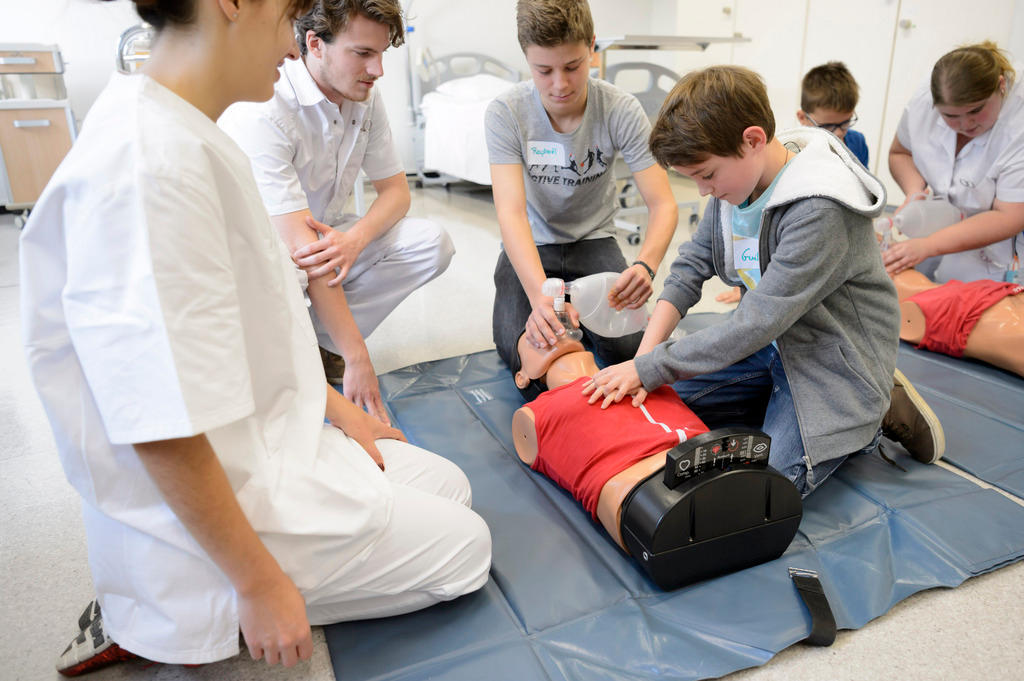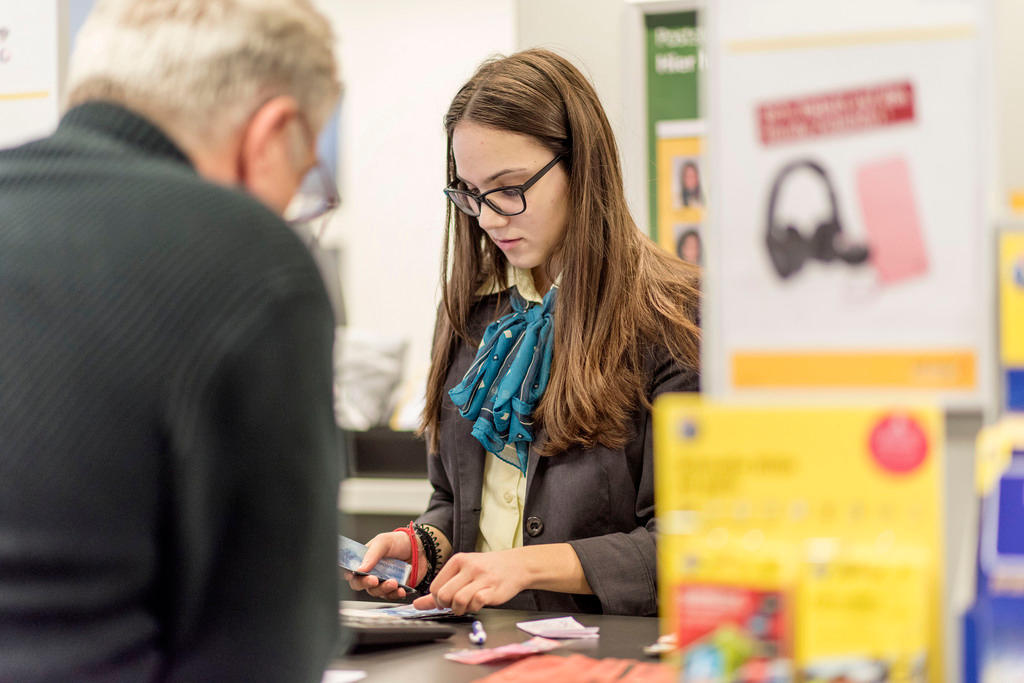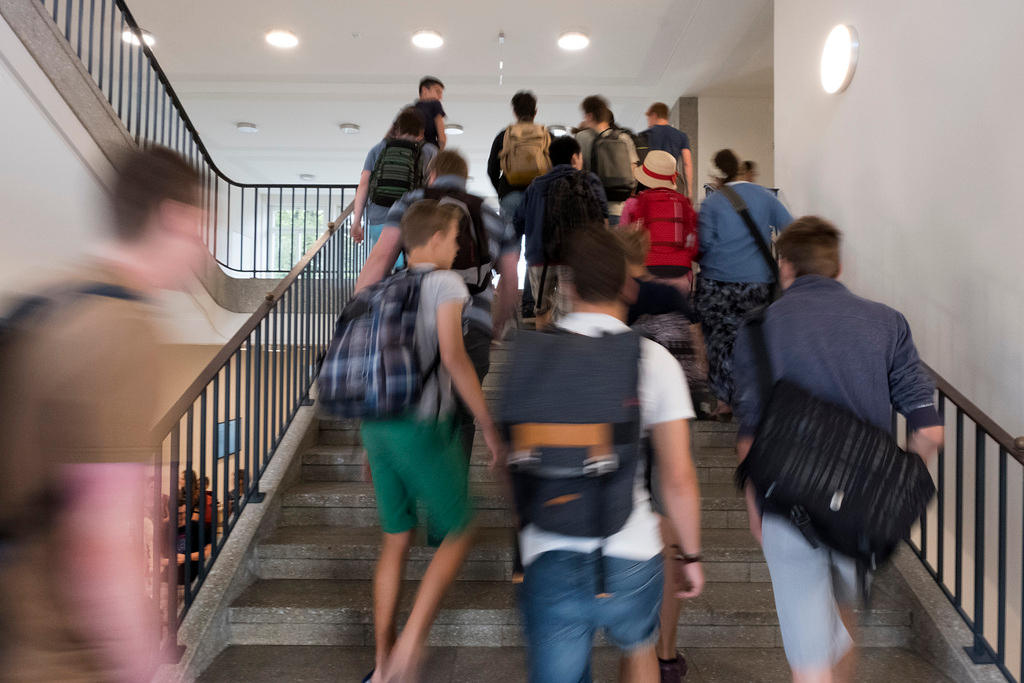Who fares best at getting qualifications in Switzerland?

Nine out of ten pupils gain a qualification five years after finishing compulsory schooling in Switzerland, almost three quarters without any interruption. But your sex, origin and social background all influence how successful you may be.
A studyExternal link published by the Federal Statistical Office on Tuesday looked at 78,000 students in basic vocational education and training (VET) – such as apprenticeships – and at school from 2011 to 2016.
In Switzerland, some two-thirds of pupils go into vocational training at around age 16, after compulsory school finishes.
The study found that only one in ten of those in upper secondary education did not finish their course or had not obtained a qualification after five years. Of the 90% that successfully did so, 17% obtained their first qualification after taking a more roundabout route: by repeating a year, changing courses, failing an exam or having a break in their education.
+ Why some apprentices break off their training
Those studying for a matura – the university entrance diploma – at a Swiss high school had the highest completion rate, with 94% gaining the diploma after five years. Among the apprentices, 89% had a Federal Diploma of Vocational Education and Training, the certificate that comes after four years’ training, after this time.
There was a marked difference among the sexes.
A difference also sprung up depending on where pupils were born.
The age that a pupil arrived in Switzerland also played a role: if you arrive by age six then you are more likely (83%) to achieve the qualification after five years than those who arrive when they are older (79%), the study found.
+ Find out what the OECD discovered about immigrant teens and study
Also important was the parents’ education level: if at least one parent had a tertiary qualification – for example, a university degree – the completion rate was 94%. Without, it was 84%.
Upper secondary education
At the age of 16, pupils in Switzerland move to Secondary II level, which generally lasts three to four years.
Upper secondary education is optional and is divided into two groups: general education and vocational.
About 20-30% of students go to a senior high school (commonly called “gymnasium” in German, “gymnase” or “lycée” in French, and “liceo” in Italian).
Most students get apprenticeships and vocational training. More than two-thirds are streamed into vocational training. This means the trainee spends most of his or her time working for an approved employer but attends a vocational school for one or two days a week.

In compliance with the JTI standards
More: SWI swissinfo.ch certified by the Journalism Trust Initiative






You can find an overview of ongoing debates with our journalists here. Please join us!
If you want to start a conversation about a topic raised in this article or want to report factual errors, email us at english@swissinfo.ch.